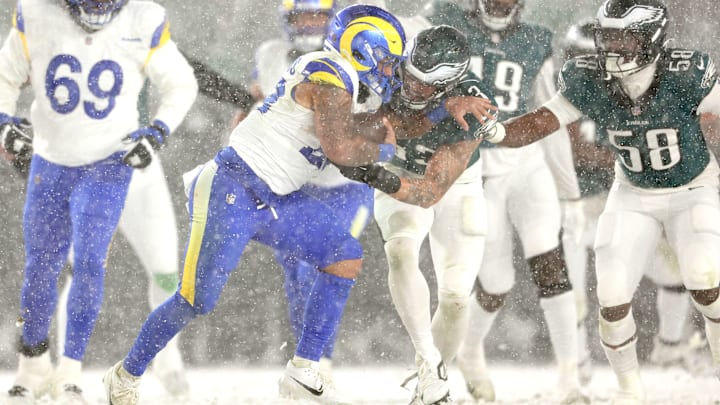The devil is in the details
When it comes to contracts, player positions are rather simple. It's about guaranteed money. Regardless of health, durability, number of snaps, or in a running back's case, number of carries, the player wants to know that he has a paycheck coming in, and that makes complete sense. Imagine working for a company that simply does not pay you if you get injured at work.
And the NFL is incredibly dangerous in terms of the number and severity of injuries incurred to players each season.
But it's the opposite perspective for the team. If a player is injured, the team must pick up the slack, pay another player, and be left holding the bag for paying two players for the same position. And the team wants to get the best performance out of players for the money. Few contracts have compensation tied to starting versus backup roles or total yards versus yards per carry. Teams pay for a player to make the roster. After that, it's up to the discretion of the coaching staff.
But the Rams struggle to optimize the talent in the running back room.
Williams suffers from a heavy workload. He is less explosive. He fumbles more often. And he runs a greater risk of injury. Even his effectiveness declined in 2024, as his yards per carry showed significant decline.
The Rams carried four running backs in 2024. But how did the team distribute the number of carries last season? Let's take a look, using snap count data compiled by Lineups.com.
- Kyren Williams - 888 snaps | 316 carries | 1,299 yards | 14 TDs
- Blake Corum - 119 snaps | 58 carries | 207 yards | 0 TDs
- Ronnie Rivers - 81 snaps | 22 carries | 99 yards | 0 TDs
- Cody Schrader - 2 snaps | 1 carry | 3 yards | 0 TDs
As you can see, the Rams directed nearly 82 percent of the offensive snaps to Williams. If they intend to modify his workload in 2025, the contract extension must reflect that changing workload. The Rams must do a better job of dispatching offensive opportunities. Why?
The Detroit Lions and Tampa Bay Buccaneers were dominant offenses in 2024. Both teams managed to get far more out of their running games by platooning their top two running backs last season. The Rams were unable to get Corum actively involved in the offense in 2024.
And now, the Rams have added another pair of talented running backs to the mix in Jarquez Hunter and Jordan Waters.
If the Rams intend to continuously add a new layer of rookie running backs to the roster, when does this team reach a point of saturation? If you examine the workload from 2024, you could reasonably conclude that the point was reached as soon as the team extended Ronnie Rivers.
NFL teams only have so much to spend. And right now, the Rams are spending far more on offense than defense. Per OverTheCap.com, the Rams are spending nearly 2.5 times more on offense than defense. Should the Rams ignore the needs of the defense and simply keep cutting checks for offensive players?
The Rams may need to stop, look, and listen. With the running back room also boasting Blake Corum, Ronnie Rivers, Cody Schrader, Jarquez Hunter, and Jordan Waters, where do the Rams get the best bang for the buck?
